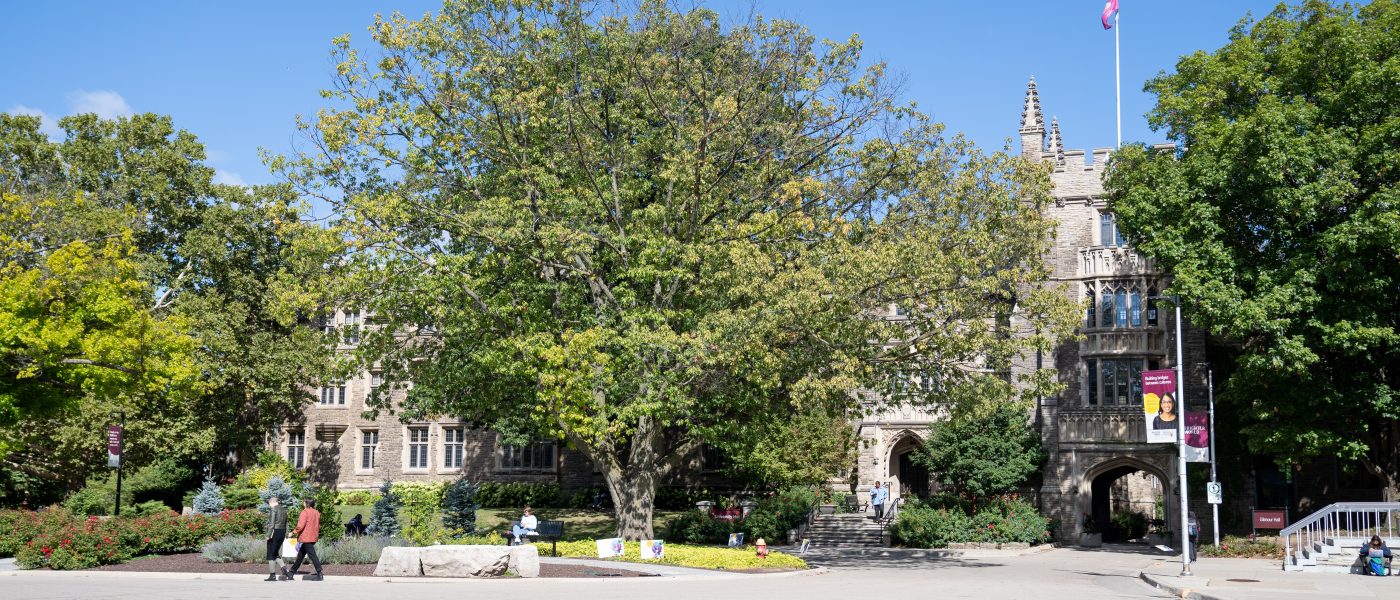Outreach
McMaster Anthropology Outreach seeks to involve the community, intending to boost public support, awareness, and understanding of anthropology.
Our primary objective is to inspire a passion for unraveling the rich tapestry of humanity. Through this, we aim to cultivate a global perspective and foster appreciation for the diverse ways in which people across the world live, connect, and thrive.
In our high school programs, students delve into the intricacies of human societies, archaeology, and cultural diversity through a combination of lectures, hands-on lab visits with engaging activities, and interactive discussions. These initiatives are crafted to complement the existing coursework outlined in the Ontario curriculum, such as SAP.
Our programs expose students to various methods and approaches for analyzing social structures, cultural practices, historical developments, and the biological evolution of humans.
Engaging in our outreach activities not only fulfills educational objectives but also provides students with a nuanced and applied understanding of the material covered in their curriculum.
This integration ensures that our program acts as a valuable extension of classroom education, enhancing academic experiences and providing a comprehensive perspective on anthropological concepts. Participants will reinforce and extend their classroom learning by exploring cultural anthropology, biological anthropology, and archaeology in greater depth.
Our goal is to ignite interest in pursuing further education and careers in anthropology and related fields.
Modules
McMaster Anthropology Outreach provides a variety of exciting opportunities for high school students in the Greater Toronto and Hamilton Area (GTHA).
We invite high school classes to join us for lectures designed to introducing them to the university experience and hands-on lab activities. Our outreach modules are flexible in terms of duration and location.
To book an outreach session, please complete the fillable PDF form and email the form to the Outreach Coordinator. If you have questions, please contact the Outreach Coordinator for more information.
Explore Our Modules: Unveiling Deeper Insights into McMaster Anthropology

The introductory lecture provides an engaging overview of the multifaceted and ever-evolving field of anthropology.
Students are introduced to the four fields approach, exploring cultural anthropology, archaeology, biological anthropology, and linguistic anthropology. Our presentation shines a spotlight on McMaster University’s Anthropology Department, spotlighting professors and their ongoing research across diverse subfields.
Throughout this session, students not only gain insight into fundamental anthropological concepts but also uncover the significance of anthropology in comprehending human diversity and behaviour.
Alternative or special lecture topics may be available upon request.
 The archaeology lab module begins with an introductory lecture that covers essential concepts and methodologies in archaeology, setting the stage for students to engage in practical learning experiences.
The archaeology lab module begins with an introductory lecture that covers essential concepts and methodologies in archaeology, setting the stage for students to engage in practical learning experiences.
These hands-on activities may include examining lithic collections, piecing together pottery shards, and conducting analyses of faunal remains.
Through active participation in these activities, students acquire firsthand practical knowledge of archaeological methodologies and understanding of the work carried out by professional archaeologists. This direct engagement offers them a tangible comprehension of the processes involved in studying artifacts and remains to reveal valuable insights into past human societies.
 The bioarchaeology lab module serves as an initiation into human skeletal analysis. Through an interactive lecture and hands-on activity with our teaching collection, students explore fundamental techniques for sex and age estimation.
The bioarchaeology lab module serves as an initiation into human skeletal analysis. Through an interactive lecture and hands-on activity with our teaching collection, students explore fundamental techniques for sex and age estimation.
This hands-on approach facilitates the creation of a biological profile from skeletal remains, emphasizing the intricate nuances of biological characteristics.
Students acquire practical experience in utilizing these fundamental techniques, discovering firsthand that biological traits are often nuanced and not always straightforward. Upon completion of the module, students emerge with a deeper understanding of human osteology and the complexities involved in the analysis of skeletal remains.
Please note that the osteology lab houses both genuine human and non-human primate remains. However, students will exclusively interact with plastic casts from the teaching collection during their activities.
 The Mortuary Archaeology module is offered in collaboration with the historic Hamilton Cemetery and the City of Hamilton. The module begins with an immersive guided tour, which focuses on the cemetery’s extensive history and its connections to significant events such as the War of 1812.
The Mortuary Archaeology module is offered in collaboration with the historic Hamilton Cemetery and the City of Hamilton. The module begins with an immersive guided tour, which focuses on the cemetery’s extensive history and its connections to significant events such as the War of 1812.
Following the tour, students are acquainted with the subfield of historic/mortuary archaeology and the anthropological inquiries that can be pursued within cemeteries without excavation. Students also participate in a scavenger hunt within the cemetery to identify motifs and unique markers.
The module concludes with a discussion on motifs and their evolution over time, offering students a deeper insight into how mortuary practices reflect societal transformations.
The cemetery tour is contingent upon approval from the City of Hamilton and can only proceed if there are no scheduled burials or funerals. Additionally, please note that this activity occurs outdoors and will proceed regardless of weather conditions.
The undergraduate student panel provides high school students with invaluable insights into McMaster University’s Anthropology program and university life. Current anthropology undergraduates join high school students in lab activities or attend lectures, offering firsthand experiences and answering questions about the program, university life, campus facilities, and more.
During this interactive session, high school students can engage with current students, learning about their experiences and gaining firsthand advice and guidance as they consider their academic and career trajectories in anthropology.
Meet the Outreach Coordinator: Amanda Cooke
As Outreach Coordinator, I am passionate about bridging the gap between the academic realm and the broader community. I am committed to making anthropology accessible and relevant to diverse audiences.
I’m also a second-year bioarchaeology PhD student in the anthropology department. I completed my MA in anthropology at the University of Victoria in 2013. My thesis examined skeletal growth and development of the human hand and its influence on the archaeological production of hand stencils by women and children, a previously understudied area.
My PhD research aims to trace the spread of malaria in relation to settlement patterns and human-altered environments, focusing on southeast Ontario between 1790-1895 CE, and to further explore the impact of this disease within a local Indigenous community.


